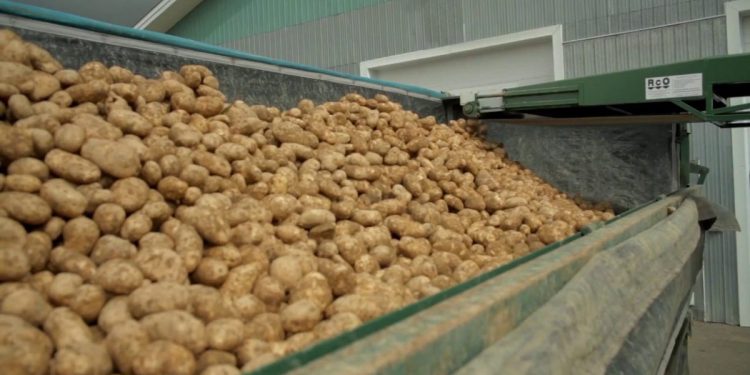#Agriculture #PotatoProduction #AgriculturalExport #KurdistanRegion #GulfCountries #EconomicDiversification #AgriculturalEconomy #FoodSupplyChain #InternationalTrade
In a promising turn of events, the Kurdistan Region is experiencing a surge in demand for its potatoes from several Gulf countries. After a successful venture in exporting potatoes to the United Arab Emirates, other nations like Kuwait, Bahrain, Saudi Arabia, and Greece are expressing keen interest in procuring the starchy vegetable from the Kurdish farms. This newfound demand is not only a testament to the quality of produce but also a positive step toward boosting the agricultural economy of the region.
Luqman Hajji, the head of sales at the Kurdistan-Holland company for agricultural investments, recently shared an exciting development. Following a recent visit by the Emirati consul to the company’s storages, a shipment of 300 tons of potatoes was successfully exported to the UAE. In light of this achievement, the UAE has now requested an additional 3,000 tons of potatoes, a deal that is expected to materialize soon. Simultaneously, discussions are underway with other Gulf nations for potential purchases.
The demand for Kurdish potatoes is multifaceted. A notable portion of this demand arises from renowned establishments like McDonald’s, which operate in the Gulf states. This presents an incredible opportunity for Kurdish farmers to contribute to the global food supply chain.
According to official sources from the Kurdistan Regional Government (KRG), the region is poised to produce an impressive 750,000 tons of potatoes in the year 2023. This projected yield not only signifies the rich agricultural potential of the region but also highlights the steps being taken to reduce dependency on potato imports from neighboring countries.
Prime Minister Masrour Barzani’s administration has been unwavering in its efforts to diversify the Kurdistan Region’s economy. This renewed focus on agriculture as a driving force for economic growth is a strategic move to harness the region’s natural resources. Despite historical reliance on imports from neighboring Iran and Turkey, this drive for agricultural self-sufficiency is a crucial step toward enhancing the region’s economic resilience.
The burgeoning demand for Kurdish potatoes in Gulf countries is a promising development that underscores the region’s agricultural prowess. The potential to not only meet domestic demands but also contribute to international markets is a remarkable feat that aligns with the region’s economic diversification goals. As the Kurdistan Region continues to tap into its agricultural capabilities, it positions itself as a significant player in the global agricultural trade landscape.







